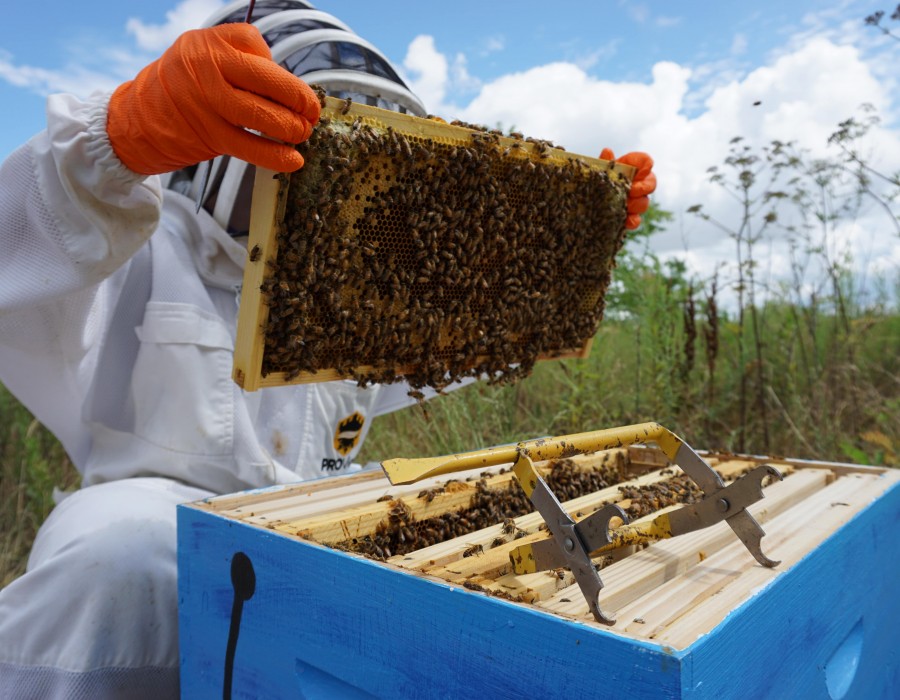Beekeeping is an age-old practice that has gained renewed interest in recent years. With the growing demand for local, sustainable honey and other bee products, beekeeping can be a profitable and environmentally friendly business venture. In this article, we'll explore the benefits of beekeeping as a business, offer tips for getting started, provide advice for managing your hive, and discuss strategies for scaling up your business.
Benefits of Beekeeping as a Business
Beekeeping can be a profitable and fulfilling business venture for several reasons. First, there is a growing demand for local, sustainable honey and other bee products. Consumers are becoming more conscious of the environmental impact of their food choices and are increasingly seeking out products that are produced using sustainable methods. Beekeeping fits the bill perfectly, as it is an environmentally friendly practice that produces a delicious and healthy product.
Second, beekeeping can have a positive impact on the environment. Bees play a critical role in pollinating plants and crops, which in turn supports biodiversity and helps to maintain a healthy ecosystem. By keeping bees, you are not only producing a delicious product but also contributing to the health and well-being of the planet.
Getting Started
Before starting a beekeeping business, there are a few things you need to consider. First and foremost, you will need to invest in the right equipment. This includes hives, beekeeping protective gear, and tools for managing your hive. You'll also need to purchase bees, either in the form of a nucleus colony or a package of bees.
Once you have your equipment and bees, you'll need to choose a suitable location for your apiary. Look for a location that is sheltered from the wind and receives plenty of sunlight. You'll also want to make sure that your apiary is not located near any areas where people congregate, as bees can be a nuisance and potentially dangerous to those who are allergic to their stings.
In addition to choosing a suitable location, you'll need to obtain the necessary permits and licenses to keep bees. The requirements vary depending on where you live, so be sure to check with your local government to find out what you need.
Managing Your Hive
Once your beekeeping business is up and running, it's important to manage your hive properly to ensure that your bees remain healthy and productive. Here are some tips for managing your hive:
Inspect your hive regularly: Regular inspections can help you spot potential issues before they become major problems. During inspections, check for signs of disease, pests, and other issues that could affect your bees.
Maintain your hive: Keep your hive clean and well-maintained to promote a healthy environment for your bees. Make sure that the frames are properly spaced and that the hive is properly ventilated.
Prevent and manage common bee diseases: There are several diseases that can affect bees, including American foulbrood and varroa mites. Be sure to educate yourself on these diseases and take steps to prevent them from affecting your hive.
Practice sustainable beekeeping methods: Sustainable beekeeping methods help to protect the environment and promote the health of your bees. This includes avoiding the use of pesticides and other chemicals that could harm your bees or the environment.
Harvesting and Marketing Your Products
Once your bees start producing honey and other bee products, it's time to start harvesting and marketing your products. Here are some tips for harvesting and marketing your bee products:
Harvest your honey and other bee products carefully: Harvesting your honey and other bee products requires care and attention to ensure that you don't harm your bees or damage your hive. Use a honey extractor to remove honey from the comb, and be sure to leave enough honey in the hive to sustain your bees through the winter.
Package and label your products: Once you have harvested your honey and other bee products, you'll need to package and label them for sale. Use high-quality packaging materials and label your products with the name of your business, the type of honey or bee product, and any relevant information such as the location of your apiary.
Market your products: There are many ways to market your honey and other bee products, including through local farmers' markets, online marketplaces, and direct sales to local stores and restaurants. Be sure to highlight the unique qualities of your honey and other bee products, such as their local origin and sustainable production methods.
Scaling Up Your Business
As your beekeeping business grows, you may need to scale up your operations to meet demand. Here are some tips for scaling up your beekeeping business:
Expand your apiary: If you're getting more orders than your current apiary can handle, consider expanding your operations by adding more hives.
Hire employees: As your business grows, you may need to hire employees to help manage your operations. Look for candidates with experience in beekeeping and a passion for sustainable agriculture.
Automate your operations: Investing in automation technology can help you streamline your operations and reduce labor costs. Consider investing in automated honey extractors, hive monitoring systems, and other technologies that can help you scale up your business.
Conclusion
Beekeeping as a business can be a rewarding and profitable venture for those who are passionate about sustainable agriculture and local food production. By following the tips outlined in this article, you can get started with beekeeping, manage your hive properly, harvest and market your products, and scale up your business to meet demand. With hard work and dedication, your beekeeping business can thrive and make a positive impact on your community and the environment.





Comments